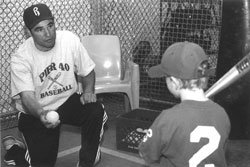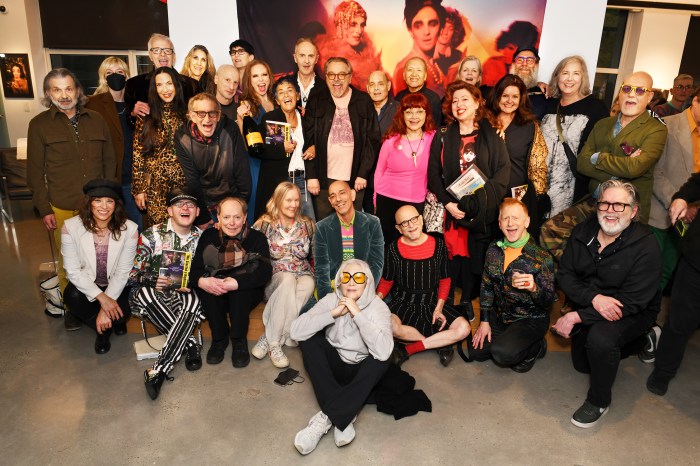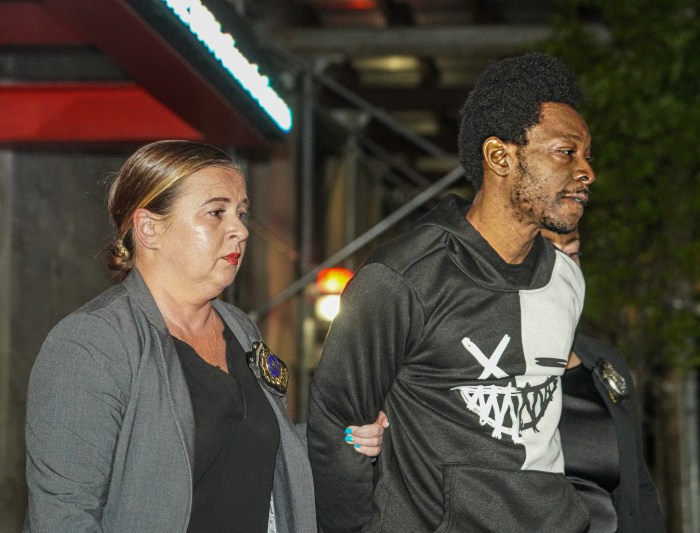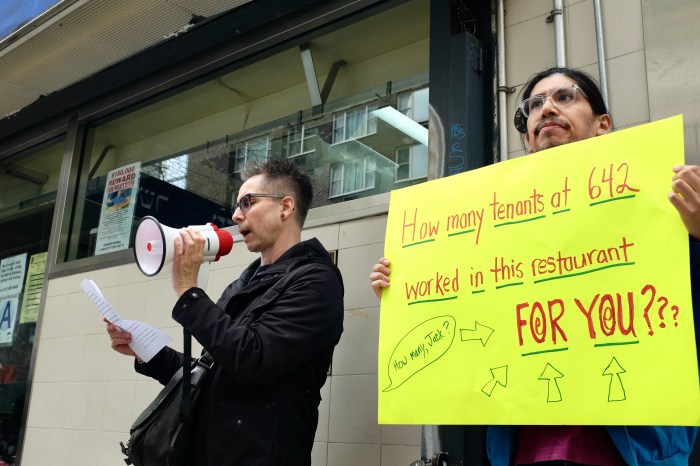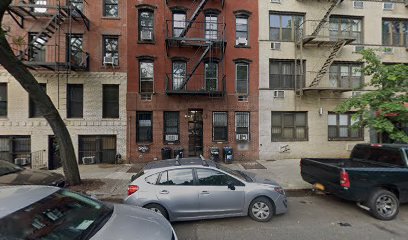By Laura S. Greene
If you venture atop Pier 40, you will find children of many different backgrounds and lifestyles playing side by side in a baseball game. You will also find the reason they say they have fun: their coaches.
“There are kids here that would not be interacting socially if it weren’t for this program. You can find one kid whose parents are millionaires playing alongside a kid who lives in the projects and is on welfare,” coach Vincent Rotolo said. “I don’t know of anything else that brings people together like this.”
Rotolo, 30, is the director and creator of Pier 40’s baseball programming, which is part of the Pier, Park and Playground Association, or P3. Rotolo spends his days teaching youngsters to play and love baseball using a confidence-based philosophy.
“When I first started coaching, I thought baseball was about winning, but that was before I knew anything,” Rotolo said. “You can never put winning in front of the emotional development of a kid.”
At Pier 40, he is often known as “Coach Vince” and that seems to suit him just fine. He looks like a “Coach Vince” with his black hair tucked underneath his “Pier 40 Baseball” cap and his matching “Pier 40 Baseball” windbreaker and T-shirt. He sounds like a “Coach Vince” with his firm yet encouraging words.
He told one child to “hustle” up to bat and another “good job” after a hit. He shouted, “Someone needs to cover second for a couple innings!” before three children obediently rushed in from the outfield to grab the position.
He has the energy one would imagine in a coach, running to assist a player who calls him Vinny, yelling for an icepack for one of his teammates. He is passionate about what he does and you can see his excitement when he talks about the P3 league, the progress the children make and even how the parents are affected.
“I could be making a lot more money doing something else, but it’s about changing people’s lives,” he said. “For me that’s worth more than working on Wall St. and making a million dollars a year.”
When Rotolo first started coaching, it was in basketball, the sport he played in high school. A turning point in his coaching career was when one boy gained confidence through Rotolo’s encouraging him to use his quickness to play defense. By the end of the season the boy was scoring baskets as a key player on his team. The boy’s mother approached Rotolo with tears in her eyes
“She started to cry because of the impact the program had on her child’s life,” Rotolo recalled. “For the first time, he invited children over for a birthday party…. He had never had friends until he gained confidence in himself through basketball….While he was in the program, I really had no idea. I could never have known the strides he was making at home and in his life until his mom told me. Once I knew that, it was a new thing for me. I really understood what being a coach was all about.”
Rotolo has developed daily contests for the P3 ballplayers to compete in like Tip of the Day, Key Word of the Day, Offensive (and Defensive) Player of the Day, Silver Bat Award and Dirty Shirt Award. At the end of each day, Rotolo energetically hosts an award ceremony for the players. They win awards like baseball cards, which are a big hit among the youngsters. But the sharp-eyed Rotolo won’t let them open the cards until he’s finished with his summary of the day’s play and the handing out of all the awards.
“The kids don’t have to be the greatest player on the team to win Tip of the Day or Key Word of the Day,” Rotolo said. “They just have to show hard work and improvement; but the best players usually win the offensive and defensive awards.”
The Dirty Shirt Award goes to the most aggressive player of the day, hence the kid with the dirtiest shirt. The prize is a dirty “Pier 40 Baseball” shirt specially dirtied by Rotolo himself.
This Bleecker St. native hasn’t always been “Coach Vince.” The fact that he personally was a better basketball than baseball player gives him a different understanding of what it means to coach baseball.
As a result, he said, “My coaching is more about the emotional part of the game…getting kids motivated…because I wasn’t as skilled on the field,” Rotolo said. “I think that’s one of the reasons our program has been so successful.”
Eleven-year-old baseball fanatic and program veteran, Zack Goldberg, said, “You not only learn how to play, but you learn about confidence, about what you’re going to do and about sportsmanship. It goes a lot farther than just baseball.”
Goldberg said he considers Rotolo a friend and teammate. Caroline Rauffenbart, 11, agreed.
“[The coaches] are really nice,” she said. “I guess that’s what makes it fun about being here.”
After attending Hunter College, Rotolo pursued a professional acting career and acted in Off-Broadway productions for seven years, but he never let go of sports completely. While acting, he worked as a coach at Joe Espinosa’s, a private sports club on Riverside Dr.
Three years ago, Rotolo was riding his bike along Pier 40, at the end of W. Houston St., when he discovered there were some new Little League batting cages and practice space at the pier. He noticed a little boy carrying a baseball glove and bat toward the pier.
“When I asked him what he was doing, he said, ‘I’m going over here to play baseball,’ and then he showed me where,” Rotolo said. “Once I saw it, I wanted to get involved.”
Shortly after, he met with Tobi Bergman, president of P3, and volunteered to start a baseball program at the pier and now it’s his full-time job. He said he just wanted to give kids, even if they weren’t rich, the opportunity to get baseball instruction.
“We never turn away anybody because of their inability to pay,” Rotolo said. “We offer scholarships to anyone who needs one.”
He is thankful to P3 and Bergman for making it possible.
In November 2000, one month after meeting with Bergman, they started the program. The first class Rotolo taught was made up of nine 7-, 8- and 9-year-olds. Last year, the program was open to 6-through-13-year-olds and taught more than 450 kids.
Rotolo attributes the growth and success of the program to the great coaching staff and to the affordability of the training program.
“All of our coaches are first rate,” he said. “They love kids and they love baseball and it comes through in our program and people love that.”
Pier 40 Baseball, which can be reached at 212-989-3764 or sports@pier40.org, offers an instructional skills development program in the winter as well as preseason position fundamentals clinics and pitching/catching clinics. These programs are offered prior to the spring Greenwich Village Little League season, which a lot of the P3 players participate in. P3 also offers spring and fall after-school baseball leagues where children can take a bus service from school to the fields and then home afterwards. In the fall, players can participate in the “Phenom Wooden Bat League” and “World Series After-School Basketball League.”
“We try to emulate Major League Baseball as much as possible, so in the spring when the Major League is playing the World Series, we hold a seven-game series,” Rotolo said.
The wooden bat league is designed to improve players’ hitting skills because it is harder to hit with a wooden bat, as opposed to an aluminum bat. It is the only program like this you can find in the city. The summer camp, the Labor Day camp and their special holiday camps, which are offered when students are on school breaks — like now during spring break — are the most popular.
Rotolo said when he was a child his parents would not allow him to play down by Pier 40 because it was dangerous. He is happy to see the space now being used as a playing field for young children, something he sees as vital especially to an area so deprived of park space.
According to a 1998 study by the New York City Environmental Justice Alliance, the Community Board 2 area, which includes Greenwich Village, Soho, Hudson Sq., Little Italy and part of Chinatown, has the least amount of open space per capita in Manhattan. There is 0.138 acres of park per 1,000 people. According to Andy Stone, the director of the Trust for Public Land, a land conservancy organization, the city aims for creating 1.5-2.5 acres of park per capita when planning new developments.
Although the Astro-turf field on the southeast corner of Pier 40’s roof that P3 uses is only interim, the kids think it’s great.
P3 ball player Rauffenbart said, “I love playing the game up here. I love it here.”
Rotolo is excited about the future of Pier 40. Referring to the controversial development plans for he pier, which could provide even more ball field space, he said, “In terms of what happens here, as long as the kids can play baseball here I don’t care — whether it’s me teaching them or someone else.”



